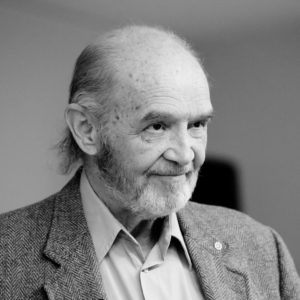“The Rehabilitation of a Buddhist Heretic” by Brian Victoria of the Oxford Centre for Buddhist Studies, United Kingdom, has been announced as the third keynote to be presented at The 12th Asian Conference on Psychology & Behavioral Sciences (ACP2022), held concurrently with The 12th Asian Conference on Ethics, Religion & Philosophy (ACERP2022).
To participate in ACP/ACERP2022 as an audience member, please register for the conference via the conference website.
The presentation will also be available for IAFOR Members to view online. To find out more, please visit the IAFOR Membership page.
Abstract
The Rehabilitation of a Buddhist Heretic
Unlike the Theravāda tradition, the Mahāyāna tradition of Buddhism allows Buddhist clerics, male or female, to regain their clerical status if they previously lost it due to having broken one or more of the four major rules of the clerical life, i.e. the four pārājikas (defeats). This possibility is included in the Māhāyana Brahmajāla Sūtra (J. Bonmō-kyō). While clerics who intentionally break one or more of the pārājikas are still subject to the loss of their clerical status, as Bernard Faure notes, “the culprit can now rehabilitate himself through his own repentance and through the merits of others.”
This presentation deals with one such cleric, a Sōtō Zen cleric by the name of Uchiyama Gudō (1874–1911), who lost his clerical status in 1909 and was subsequently hung to death by the Japanese government on January 24, 1911. It was not until April 1993, 84 years later, that Gudō’s clerical status was restored. The restoration occurred because the Sōtō Zen sect admitted Gudō “had been a victim of the national policy of that day.” In essence, the Sōtō Zen sect admitted it had erred in depriving Gudō of his clerical status in 1909 since he had violated government policy, not one of the pārājikas as charged. This presentation will focus on the process of Gudō’s rehabilitation in postwar Japan.
Speaker Biography
Brian Victoria
Oxford Centre for Buddhist Studies, United Kingdom
Brian Victoria is a native of Omaha, Nebraska and a 1961 graduate of Nebraska Wesleyan University in Lincoln, Nebraska. He holds a MA in Buddhist Studies from Sōtō Zen sect-affiliated Komazawa University in Tokyo, and a PhD from the Department of Religious Studies at Temple University.
In addition to a second, enlarged edition of Zen At War (Rowman & Littlefield, 2006), Brian's major writings include Zen War Stories (RoutledgeCurzon, 2003); an autobiographical work in Japanese entitled Gaijin de ari, Zen bozu de ari (As a Foreigner, As a Zen Priest), published by San-ichi Shobo in 1971; Zen Master Dōgen, coauthored with Prof. Yokoi Yūhō of Aichi Gakuin University (Weatherhill, 1976); and a translation of The Zen Life by Sato Koji (Weatherhill, 1972). In addition, Brian has published numerous journal articles, focusing on the relationship of not only Buddhism but religion in general, to violence and warfare.
From 2005 to 2013 Brian was a Professor of Japanese Studies and director of the AEA “Japan and Its Buddhist Traditions Program” at Antioch University in Yellow Springs, Ohio, United States. From 2013 to 2015 he was a Visiting Research Fellow at the International Research Center for Japanese Studies in Kyoto, Japan. His latest book, Zen Terror: The Death of Democracy in Prewar Japan was published by Rowman & Littlefield in February 2020. Brian is currently a Senior Research Fellow at the Oxford Centre for Buddhist Studies and a fully ordained Buddhist priest in the Sōtō Zen sect.


